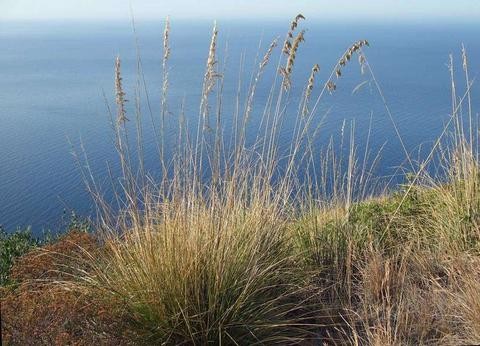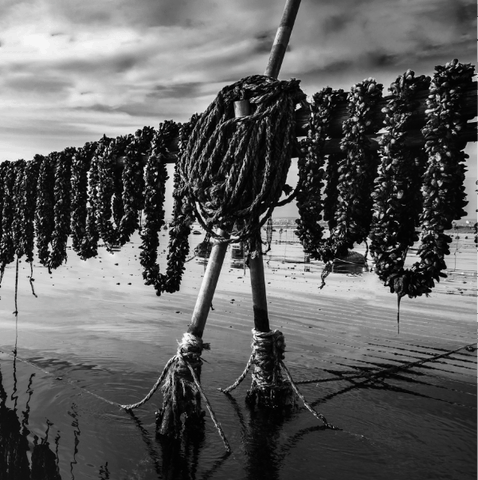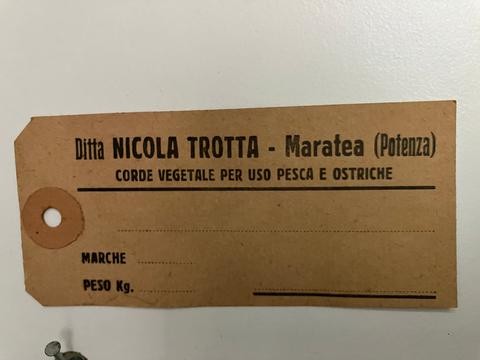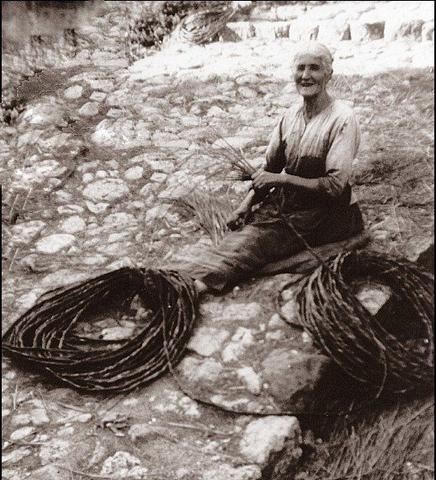Libáni
The libáni in the plant population of Maratea
Origin of the term libáni
Various uses of the libáni
The "libbani" were produced in Maratea until the end of the 70s. Their processing was an important economic activity for the local community, and the ropes were used for a variety of purposes, including mainly fishing but also agriculture, crafts and construction. As for fishing, in addition to being used as rigging by local fishermen, the libbani were used for aquaculture and in particular mussel farming, i.e. the cultivation of mussels, especially mussels and oysters. Mussel farming, a widespread practice along various Italian coasts, is based on the grafting of mussels onto ropes called "libani", ropes which are hung dangling in the water on particular structures called "pergolas". This practice was particularly common in various areas, including Naples, Gaeta, the Mar Piccolo in Taranto, the lake of Ganzirri (Messina), La Spezia, the Venetian lagoon, the Trieste coast and Olbia on Sardinia coast. Precisely for this particular use the majority of the production of libáno from Maratea was transported to the various breeding areas by various commercial companies. In particular, the Trotta company of Maratea had warehouses in La Spezia, Taranto and Messina to supply the ropes produced by the women of Maratea to local mussel farmers (in the photo: Shipping label). This activity lasted until an important technological development, which occurred around the sixties of the last century, contributed to the spread of mussel farming in Italy but at the same time decreed the end of the use of mussels. The innovation consisted in the introduction of tubular polypropylene nets to replace the traditional ropes for making ropes used in mussel cultivation.
How libáni are produced
Manufacturing was a laborious process and required a lot of skill. First, the women scanned the slopes and coasts of the mountains in search of "Tagliamani" (hand cutters), the word used in the local language for the grass due to the extreme sharpness of its leaves which therefore had to be collected with care to avoid cuts to the hands.
The plant fibers were cleaned and broken into thin threads and collected into bundles which were left to soak for a certain time. Then we proceeded with the "mazzoccolatura", the phase in which the leaves are struck with squat wooden mallets.
Eventually the "threads" thus obtained were intertwined together to obtain the libbani, produced in a variety of sizes and thicknesses, depending on their use. Thinner ropes were used for fishing, while thicker ropes were used for farming or construction. Libbani were also used for the production of handicrafts, such as baskets, carpets and bags.
In the photo (from calderano.it, the database of historical photos of Maratea) an elderly lady in the 1960s who was working with Libàni.
The libáni today in Maratea
In 2019, as part of Matera European Capital of Culture, the Ri-Corda project was launched, which had the aim of recovering the processing of libbani in Maratea. The project involved a group of women from the local community, who learned the traditional technique of making libbani.
The Ri-Corda project has been significantly successful, and has led to the creation of New Mediterranean Libbaneria, a community social enterprise that deals with the production and marketing of Libbaneria.
New Mediterranean Libbaneria offers a variety of products made from Libbaneria, including ropes, baskets, rugs and bags. The products are made with high quality materials and traditional techniques, and are appreciated by an increasingly wider audience.
The rediscovery of the Libbani in Maratea is an example of how traditional craftsmanship can be enhanced and made competitive in the modern market. Libbani are a high quality product, with a strong identity rooted in the territory. Their production contributes to the enhancement of the cultural and environmental heritage of Maratea.
Edited by Jean Marout
www.maratea.info is managed by
AltriTurismi ets Association
-
Support our Association MAKE A DONATION !







